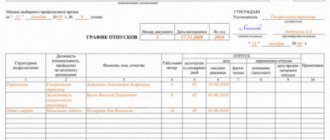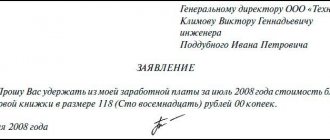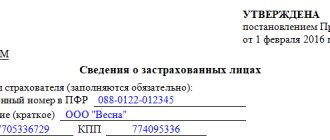Is it possible to fire an employee who is constantly late for work?
Definition of lateness according to the Labor Code of the Russian Federation
Lateness is a disciplinary offense by an employee, which involves the absence of a person from his workplace without a valid reason for no more than four hours.
That is, the duration of delay can be determined by the period of absence of the employee at his place of work from one minute to four hours. If this duration is exceeded by the employee, then we will be talking about a serious labor offense - absenteeism.
In enterprises, delays are the most common occurrence. Sometimes they can happen for good reasons. In some companies, small delays (for example, five minutes) may be viewed condescendingly by the administration.
Attention! But if delays are systematic and last a considerable time, their result may be a disruption of the production process in the organization, so management begins to take appropriate measures.
Differences between being late and absenteeism
Both tardiness and absenteeism represent the absence of an employee from his workplace.
However, there is a difference between them:
- The duration of delay cannot be more than 4 hours, and absence of an employee for more than 4 hours is considered absenteeism.
- Lateness is considered a minor disciplinary offense, and absenteeism is considered a serious one.
- For being late, disciplinary action is imposed in the form of a warning and reprimand, and dismissal at the initiative of the employer is possible only when lateness is repeated (more than twice). If an employee skips work, he can be fired immediately for absenteeism.
- Lateness is rarely recorded on the report card. Absenteeism must be reflected in the time sheet using a special code.
What does the law say about dismissal for absenteeism?
An employer, in accordance with the labor code, can hold an employee accountable in the form of dismissal for absenteeism. A serious offense, which includes absenteeism, gives the company administration the right, if necessary, to take appropriate disciplinary measures.
However, the law requires mandatory compliance with the established procedure with the correct execution of all necessary documents.
Nuances of the procedure for terminating an employment contract for being late
When terminating an employment contract for being late, the employer should take into account the following circumstances:
- the personality and character of the employee, his value to the company as a qualified specialist;
- repetition of disciplinary offenses. If measures to influence the employee are not successful, then it is advisable to dismiss the employee, with prior notification;
- guarantee to the employee of labor rights - payment of wages in proportion to the time worked, provision of compensation, additional payments provided by the company.
To begin dismissal, you should discuss with the employee future prospects for his employment in the organization. A reprimand and (or) reprimand as an alternative to dismissal can influence an undisciplined employee and avoid the procedure for terminating an employment contract.
The employer carefully records the fact of violation of labor discipline. Once written explanations have been received from the employee, they should be reviewed. If the employer believes that the reasons for systematic tardiness are unjustified, then he can begin the dismissal procedure. For this purpose, a corresponding order is being prepared. In it, the employer indicates the name of the organization, full name. employee, designates his position, specialty code (if necessary).
The order specifies the date of conclusion of the employment contract and the date of its termination. The employer must also indicate the reason for dismissal with reference to the norm of the Labor Code of the Russian Federation - usually this is Art. 81, 192 Labor Code of the Russian Federation. The order is signed by the head of the enterprise or other authorized official. If the organization has a seal, it is also affixed to the document. A copy of the order is provided to the employee against signature or sent to the place of residence or actual location of the former employee by registered mail (possibly together with the work book and a certificate of the amount of accrued wages).
Reasons for being late: valid and disrespectful
Employees may not arrive at work on time for a variety of reasons.
They are usually divided into respectful and disrespectful.
If the employee has a valid reason for being late. Disciplinary measures cannot be taken against him. These reasons include:
- Poor health of a company employee.
- Illness of a close relative, child.
- Death of a close relative.
- Employee participation in an accident.
- Disruptions to public transport.
- Natural disaster or declaration of a state of emergency.
- An accident involving an employee resulting in injury.
- Execution of state or public duty.
- And other.
Good reasons require the presence of supporting documents. All other reasons are considered disrespectful, so disciplinary measures may be taken against the employee for them.
Important! The list of unexcusable reasons for being late is not legally defined. The employer independently determines whether the employee’s reason for being late is valid. To find out the reason for being late, you need to ask the employee for an explanation.
Compensation
In accordance with the Labor Code of the Russian Federation, upon dismissal for lateness, the employer must pay the employee all compensation due to him.
Thus, the person must be transferred the following amounts of money:
- Salary for the last month worked. The last day of work is also included in the calculation;
- Bonuses and bonuses for special achievements in work (if applicable);
- Payment for unused vacation days.
Article 140 of the Labor Code of the Russian Federation states that the company must finally pay the employee on the last day of his shift. A delay of one day is allowed if for some reason a person does not show up for work (for example, he took a vacation or sick leave).
What will happen to an employee for being late: types of penalties
The Labor Code of the Russian Federation establishes that the following penalties may be applied to an employee:
- A reprimand is given to an employee for being late for a single time without a good reason.
- A reprimand is a more severe sanction that is imposed if lateness is repeated again.
- Dismissal for being late for work applies to an employee if it is repeated more than twice. In this case, the company administration decides to terminate the contract with the employee or apply a lighter penalty.
You might be interested in:
Transfer to another job without the employee’s consent - in which case is it possible, the employer’s responsibility
These penalties should be reflected by order of the company management and reflected in the employee’s personal file.
Attention! During the probationary period, the employee’s work is constantly monitored. Therefore, every case of lateness is carefully recorded. If the employee is repeatedly late, this may be one of the reasons why the employee will not pass the test.
Dismissal procedure
Dismissal under the article for being late for work (the reason for termination of the contract due to violation of discipline is indicated in the work book) occurs only in the event of systematic incidents on the part of the employee. In other cases, by decision of management, they may be asked to write a letter of resignation of their own free will.
Collection of evidence
At any enterprise, there is a log of the arrival and departure of employees - the day, time of arrival and departure from the workplace, as well as crossing the checkpoint, if the organization has one. Data registration is carried out in writing under the signature of the employee himself or using an electronic system that uses an individual pass with a chip.
It is important to know! If management has complaints against any of the employees, the director has the right to request a log or print information for each of the system. The fact of being late becomes the reason for dismissal, and the data becomes evidence. In the event of subsequent legal proceedings, the director provides relevant extracts.
Requirements for explanatory notes
For each fact of violation of discipline, management has the right to demand an explanation, including during the employee’s probationary period. The employee writes the following information in the document:
- in the header the full name of the organization, full name and position of the recipient, as well as your personal data;
- in the center of the sheet write the name of the document - “Explanatory Note”;
- Next, you should describe the fact of the violation that occurred - being late for work - indicating the reason;
- if there is confirmation of a valid factor, it is necessary to indicate in the text that an additional document is attached;
- date and signature at the end.
An explanatory note is provided to management no later than two days after the violation was committed. If the director of the organization does not see a valid reason for being late, he may decide to dismiss the employee.
Order
Depending on the situation and the personal relationship between the employee and the manager, dismissal occurs for being late for work under an article or at “your own request.” Once the decision has been made, an order is created, which specifies the moment of dismissal of the employee for a specific reason. The document indicates the day of termination of the employment contract, and, if necessary, lists the due payments.
In what cases will you not be punished for being late?
As soon as the employee shows up for work, he should be asked to explain the issue of late appearance at work. It is best if the employee writes an explanatory note. Based on its content, management makes a decision.
If the reason for being late is valid, and especially if there are supporting documents, the employee cannot be held accountable. If you ignore this right and punish a late worker, he will be able to restore his rights through the court.
How to fire someone for being late as a disciplinary sanction
As mentioned above, you cannot fire an employee for being late once. Moreover, there are a number of measures that must be taken against a violator of discipline in order to impose preliminary sanctions on him in the form of a reprimand and reprimand:
- upon each delay, an explanatory note must be taken from the employee, which he must provide to the employer within two working days;
- if a written explanation is not provided, a written act must be drawn up about this;
- after this, disciplinary action can be applied to the employee, depending on the severity of the offense and its systematic nature;
- a disciplinary sanction can be applied to an employee only within the period established by law - one month;
- the employee must be familiar with the order to apply a disciplinary measure against him.
An employee cannot be held accountable twice for the same violation. That is, it is not allowed to apply double penalties for one late employee. But if these delays occur daily, then each fact of such misconduct can be regarded by the employer as a separate violation, and after three days of delay, the employee can be fired. In order for the dismissal to take place in a legally competent and justified manner, it is necessary that exactly three facts of violation of labor discipline and the employee’s tardiness be recorded.
Many employers simply forget such an important nuance as a written explanatory note.
But this document has legal importance. Especially when an employee does not agree with his dismissal and sues the company to reinstate him in his previous position
Such an explanatory note from the employee himself will be clear evidence that he was, after all, late, and therefore violated the internal labor regulations of the enterprise, and even without a good reason.
If the delay lasts more than four hours in a row
It also happens that an employee is late for work, moreover, by more than four hours. In this case, Article 81 of the Labor Code allows for the dismissal of such an employee for a one-time violation. This violation of labor discipline is already called absenteeism. Therefore, the question of how to fire an employee for being late no longer has such a complex interpretation, since the norm of the specified Article 81 gives the employer the direct immediate right to fire an employee under the article, and without waiting for the next similar violation.
Why such strict legal requirements for personnel discipline? Yes, because any organization begins with discipline. And, if one employee gets away with being constantly late due to “oversleeping,” “travelling far,” etc., then the discipline of the entire workforce may suffer. And in this case, the expression: “So that others may be disgraced” justifies itself. Restricting an employer from dismissing such employees would be unlawful.
List of sources
- hr-portal.ru
- uridicheskoelico.guru
- pravostoriya.ru
- sb-advice.com
Dismissal for systematic tardiness: stages of the procedure
Recording the fact that an employee is late
If an employee does not show up at his place on time, then this fact must be documented. To do this, it is necessary to draw up an act in which the date, time and circumstances of the absenteeism will be recorded.
The law does not provide a special form for such an act. Usually it is compiled in any form by the truant’s immediate supervisor, or by the personnel officer who is responsible for maintaining the time sheet.
At least two people must be present when drawing up the act. They will act as witnesses to the incident and will put confirming signatures at the end of the document.
Attention! If an employee sues for wrongful dismissal, these employees will act as witnesses to the disciplinary incident.
Writing an explanatory note by a late employee
The employee must be asked to provide an explanatory note in which he can give his version of the event. The requirement to provide an explanatory note must be expressed in writing and submitted against signature.
It also usually specifies the period of time within which explanations must be provided. Most often, this takes 2 days.
The employee may refuse to provide an explanation. This does not mean that he cannot be punished in the form of a reprimand or dismissal.
Attention! If the allotted period has expired and explanations have not been provided, or the employee immediately refused to give them, a statement of refusal is drawn up.
Order of reprimand/reprimand
The employer does not have the right to fire an employee for the first time he is late; first he must be subject to milder penalties, a reprimand or a reprimand. To fix the chosen punishment, you must issue an order.
It is drawn up in free form, and it indicates:
- Information about the employee (full name, position, etc.);
- The circumstances of the offense committed (date, time, how it was discovered, etc.);
- Type of punishment applied.
Attention! The completed order must be delivered to the employee against signature. It must be remembered that an employee can be disciplined only once for one violation.
Recording repeated lateness of an employee
If the employee continues to be late, then in each case it is necessary to act in the same way - draw up a violation report, request an explanation from the employee, and bring disciplinary action.
However, in this case, it is necessary to remember that as soon as within 12 months the employee is held accountable 2 times or more, this will be a reason to dismiss the employee under the article for systematic tardiness.
Attention! It must be remembered that a pregnant employee is not subject to dismissal under any circumstances. Judicial practice shows that even if the dismissal was justified, by a court decision she will still have to be reinstated in her place.
Violation of labor discipline
If an employee does not fulfill his job duties or performs them improperly, and his guilt is established, such behavior is classified as a disciplinary offense.
In this case, the employer has the right to reprimand or reprimand the employee or dismiss him on appropriate grounds (Article 192 of the Labor Code of the Russian Federation). And labor responsibilities, as we found out, also include compliance with the working hours regime specified in the internal labor regulations or in the employee’s employment contract.
Consequently, being late may, under certain circumstances, be regarded as a disciplinary offense. This is also stated in the letter of Rostrud dated March 11, 2009 No. 1146-TZ.
But before making a decision on whether or not to apply a disciplinary sanction to an employee, the employer must follow a certain procedure:








